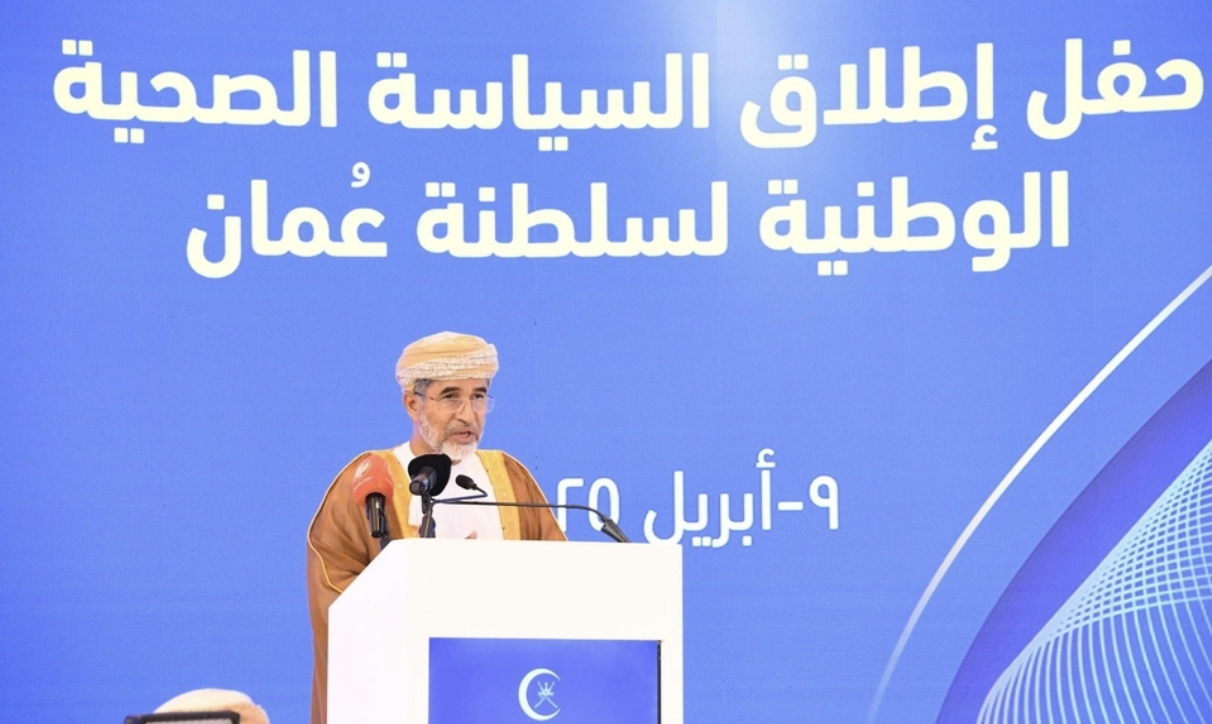Oman’s Ministry of Health has launched a new National Health Policy aligned with Oman Vision 2040, emphasizing a holistic, cross-sector approach to “Health for All, by All” by integrating health considerations across all government policies and prioritizing sustainability, equity, and digital transformation.
The Ministry of Health in Oman has officially launched the Oman National Health Policy, marking a strategic step toward realizing the ambitions outlined in Oman Vision 2040. The ceremony, led by Sayyid Dr. Sultan Ya’arub Al Busaidi and attended by officials and representatives across different sectors, underlined the collective nature of this achievement. Dr. Ahmed Salem Al Mandhari, Undersecretary for Health Planning and Regulation, highlighted that this policy is the result of inclusive and participatory development processes, ensuring alignment with both national aspirations and global health trends. This collaborative approach has made the policy a central pillar for the transformation of Oman’s healthcare system, aiming to create a model that is efficient, equitable, and sustainable.
Central to the new policy is the principle of “Health for All, by All,” which reflects a holistic view that health extends beyond medical care and is shaped by factors such as education, living conditions, income, and the environment. Recognizing this, the Ministry has adopted the Health in All Policies (HiAP) approach, which integrates health considerations into policymaking across all government sectors. This paradigm stresses the importance of coordinated action among governmental bodies, non-governmental organizations, and the community itself to enhance population health, promote equity, and mitigate any negative health consequences of public policies.
The HiAP approach embedded in the policy strives to improve population health outcomes, promote fairness, and ensure that health priorities are woven into the fabric of all government decisions. By doing so, it seeks to foster sustainability in the choices that affect public health and prevent potential risks before they arise. Dr. Hana Balkhy, representing the World Health Organization, reaffirmed that the policy aligns with major WHO initiatives, including expanding access to essential medicines, strengthening the health workforce, and addressing substance abuse, as well as the broader objectives set by the WHO’s regional and global programs.
The new National Health Policy stands out for prioritizing sustainability, reinforcing governance, and nurturing collaborative cross-sector partnerships. It advocates for a comprehensive healthcare model that recognizes evolving demographic and epidemiological patterns within Oman, focusing particularly on sustainable financing and digital transformation to optimize service delivery. The policy directly addresses pressing challenges such as the rising burden of non-communicable diseases, the implications of an aging population, and the necessity for robust, long-term health financing. An emphasis on service quality, decentralization, and refinement of governance mechanisms seeks to ensure that resources are managed more effectively and equitably, setting the groundwork for a resilient and inclusive healthcare future in Oman.


